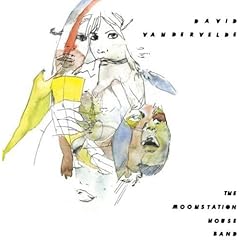Slang is one of my favorite language topics. In my mind, slang is one of the keys to the vibrancy of the English language. It helps the language to grow and change. It also reflects contemporary culture and attitudes. In short, slang could reasonably be considered the lifeblood of any language.
So
this article from the
local alternative newsweekly got me thinking about the power that peer groups can have over the slang that one uses. In fact, the groups that I hung around with when I was in college virtually had a language of their own. Since these groups were comprised primarily of college guys, most of the group slang centered around sex, girls, drinking, and sports. While I can't claim that the slang we used was entirely original, it was certainly colorful, humorous, and sometimes (gasp) offensive.
Here's a sampling of the "clique speak" of my college peer groups. Be forewarned--if you're easily offended, particularly by remarks about women that could be considered disparaging, then you might not want to read any further. I contemplated censoring some of these entries, but I thought that I might as well be totally honest about the language that we used. I'm not proud of some of it, but I and my peers certainly weren't as mature or reflective at the time that we used it.
After reading these words, you might not be shocked to learn that I was in a fraternity in undergrad; many of these terms come from that experience.
burt (verb) - To vomit. "After Solly did that beer bong, he burted all over his shirt."
Craftsman (noun) - A jerk. Originated as an attempt at a more creative variant of the slang
tool. "Steve - He's a total Craftsman."
fat house (noun) - Off-campus housing. Originated when several hefty fraternity brothers moved off campus. Came to be used as a blanket term for any house or apartment in which fraternity brothers or other friends were living off-campus. "Dude, let's head on over to Joe's fat house."
goat (noun) - An uncool person. "John's a goat because he listens to DeBarge."
hee-her (interjection) - Used in response to an act of stupidity. The rough equivalent of
duh. Comes from an attempt to mimic the sound of the laughter of a fraternity brother who was not considered terribly bright. "Dropped your beer, dude? Hee-her!"
Santo (noun) - A sixteen-ounce can of Old Style Beer, so named because Chicago Cub Hall of Famer Ron Santo's picture was once featured on the back of the can. "Dude, toss me another Santo."
saving throw (noun) - When one escapes the clutches of a drunk, unattractive woman. From a term used in the fantasy role playing game Dungeons and Dragons that describes the dice roll a player makes to see if he can escape a dangerous situation. "That girl had Joe cornered, but he managed to make a saving throw."
skeetch (noun) - A physically unattractive girl. "Did you see the skeetch that Woody took back to his room?"
skeetch stud (noun) - A guy who has a reputation for chasing skeetches, particularly after he has consumed alcohol. "Woody is the king of skeetch studs."
Well, Gorby (interjection) - Used simply as a pause in speech when the speaker is thinking. Substitute for
um,
uh, and the like. Inspired by a comedy sketch depicting a conversation between Ronald Reagan and
Mikhail Gorbachev. Came into use when one of my college friends began to repeatedly use the phrase at the beginning of each sentence. "Well, Gorby, I guess we can go get some beer now."
wet (adj.) - Uncool. "Those acid wash jeans are wet, man." Variant is the noun
waterfall, used for someone who is extremely uncool. "He's such a waterfall because he wears acid wash
every day, dude!"
 McDonald's Corporation is not happy with the Oxford English Dictionary's definition of the word "McJob," which the OED says is "an unstimulating, low-paid job with few prospects, esp. one created by the expansion of the service sector." As a consequence, the company has decided to urge dictionaries in the UK to remove the definition, claiming that "McJob" means the exact opposite (i.e., a job that is stimulating and offers good chances of career enrichment and advancement).
McDonald's Corporation is not happy with the Oxford English Dictionary's definition of the word "McJob," which the OED says is "an unstimulating, low-paid job with few prospects, esp. one created by the expansion of the service sector." As a consequence, the company has decided to urge dictionaries in the UK to remove the definition, claiming that "McJob" means the exact opposite (i.e., a job that is stimulating and offers good chances of career enrichment and advancement).


